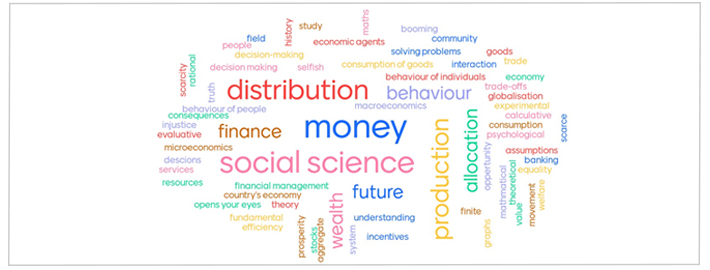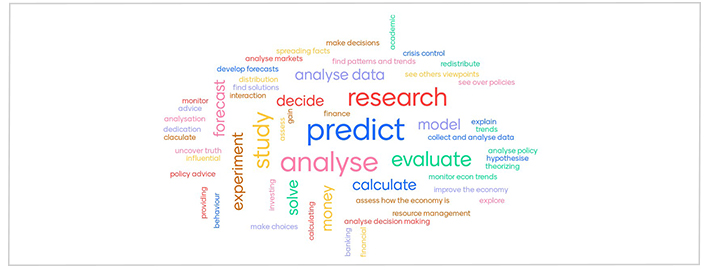Sutton Trust Summer School 2020

Sutton Trust Summer School 2020
Friday 31 Jul 2020We are pleased to report that the Sutton Trust Summer School (STSS) which ran between 27-31 July was a great success. The programme, offered to Year 12 high achieving students from disadvantaged backgrounds, attracted 120 participants from across the UK.
Since 2016, Warwick has been one of 13 partner universities in the Sutton Trust's UK Summer School Programme, organised by the University's Widening Participation and Outreach Team and supported by academic departments, including the Department of Economics. The aim of the programme is to enable the participants to experience what being a student at Warwick is like. They attend taster lectures in a subject of their choice and learn about the UCAS process as well as attend social events.
Virtual delivery
This year, the challenge was to organise and deliver the STSS programme entirely in a virtual environment, via the Sutton Trust Online Platform. As in previous year, we supported the initiative by delivering academic content as part of the Philosophy, Politics and Economics (PPE) stream, alongside our colleagues from the Department of Philosophy and the Department of Politics and International Studies. As we are all getting used to more digital communications since the beginning of the pandemic, the presenters, facilitators and the participants found it relatively easy to adjust to a virtual delivery of the programme.
Behavioural Economics
The Economics session was delivered by Dr Lory Barile, Associate Professor and the Widening Participation Coordinator in the Department of Economics, who engaged a group of 28 PPE stream participants in playing a simplified version of the public good game with punishments as described in Fehr and Gatcher (2000). The idea was to link the experiment with the concept of altruistic punishment and individuals' behaviour during the pandemic. For the online game, students were put into eight groups of four and in each round they had to make individual decisions which had brought different levels of benefit to them individually and to their group. In break-out rooms, after the game, they had an opportunity to answer some questions and reflect on the nature of the game they played, the strategy they had adopted during the game, the reasons for their contributions to the common project, and the relevance of the game for economists.
Dr Lory Barile said:
 "I really enjoy working with the young students to open their eyes to the exciting subject of economics. I think that experiential learning is an excellent way to introduce and discuss complex economic concepts! "
"I really enjoy working with the young students to open their eyes to the exciting subject of economics. I think that experiential learning is an excellent way to introduce and discuss complex economic concepts! "
Before starting the game, students were also asked in an online survey, to describe in three words what economics is and what economists do. The results can be seen in the word clouds below.
What is economics?

What do economists do?

The answers to these questions as well as those that guided discussion in the break-out rooms survey were used to conduct some data analysis that was presented in a Q&A session the following day. During this session, the link between the reading material suggested prior to the live session and the experiment was made clear, and with clear reference to the pandemic. The results of the experiment, its relevance for economists and any misconception about what economics is and what economists do were also discussed and the winning group was announced.
During the experiment, Dr Barile was assisted by a group of colleagues from the Department of Economics (Atisha Gosh, Cecilia Lanata-Briones and Bozena Beauclair), one Economics student (Elakiya Ananthakrishnan ) and members of the wider WP and Outreach team, who acted as facilitators in the virtual break-out rooms.
Feedback from the participants
Here is what the participants posted in the anonymous online poll, which shows that they did enjoy the session:
"The experiment in the economics lecture was super accessible whilst opening up some really interesting discussions afterwards."
"The experiment in the economics seminar was very engaging."
"The experiment that had taken place in economics was engaging as we were challenged to think outside the box and come up with what we thought the aim of it was - the conversations that followed were also really engaging."
Further information
For further information about different aspects of this article, please visit:
- our Outreach in Economics page to see how the Department is involved in various outreach initiatives and who to contact;
- Dr Lory Barile's profile and how she describes her research in behavioural economics
- Experimental and Behavioural Economics research group page - to find out more about the Department's research in this area.
